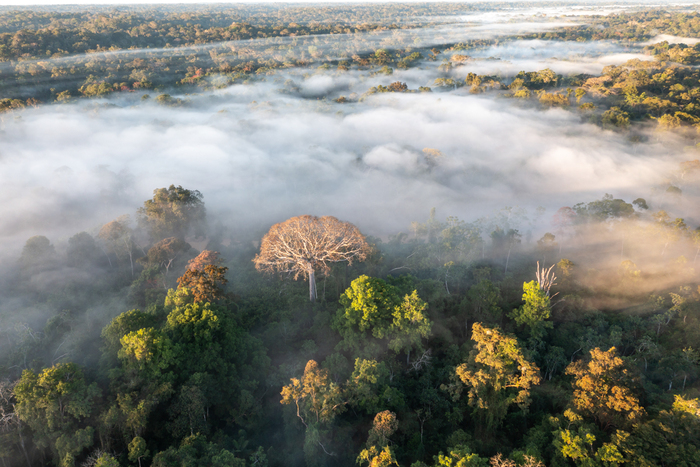The Amazon forest could pass the point of no return as early as 2050: 10% to 47% of the ecosystem risks collapse under the weight of stress caused by water scarcity, climate change and deforestation, with unpredictable and far-reaching consequences for the Amazon itself, but also for the entire planet.
This is indicated by the international study led by the Federal University of Santa Caterina in Brazil and published in the journal Nature, which underlines the urgency of taking actions that can reverse this trend, for example by restoring the areas most at risk, putting a brake on deforestation and focusing on renewable energy sources.
The Amazon forest hosts 10% of the Earth's biodiversity, stores carbon equivalent to 15-20 years' worth of global emissions and contributes decisively to stabilizing the Earth's climate.
In general, ecosystems are always subject to some degree of stress due to external causes, but once a certain threshold is exceeded they succumb to pressure, causing large-scale changes.
The consequences of a similar event in relation to the Amazon should be a cause for concern globally, and for this reason researchers led by Bernardo Flores sought to shed light on this possibility.
The authors of the study analyzed several causes of water stress, including global warming, the amount and intensity of precipitation, the length of the dry season and deforestation, thanks to climate data from the last 65 million years, climate models and satellite observations.
According to the results obtained, the Amazon forest could reach a critical point by 2050: once this threshold is exceeded, a large part of the ecosystem would be at risk of collapse, a transition that could threaten the Amazon's role as a CO2 repository and could worsen the effects of the climate crisis.
Reproduction reserved © Copyright ANSA

